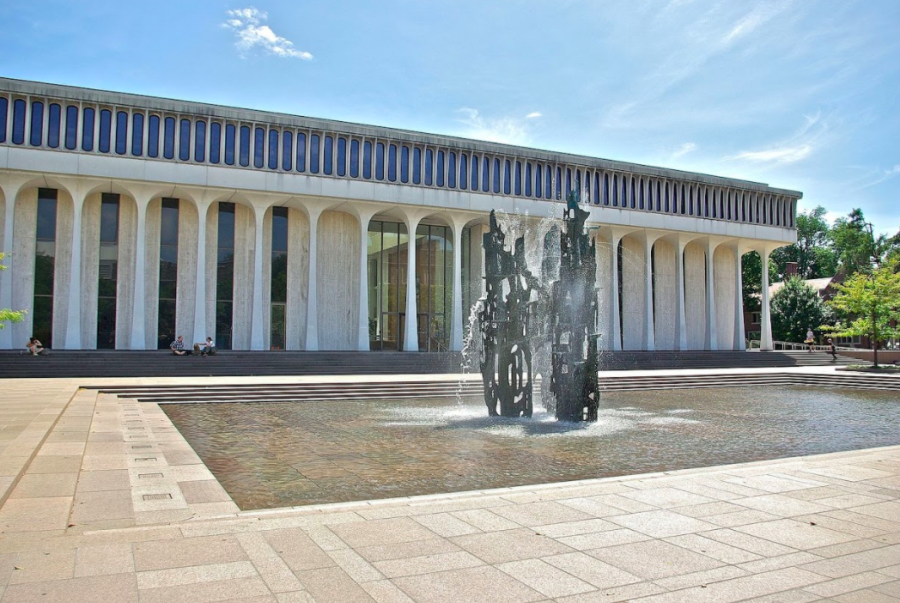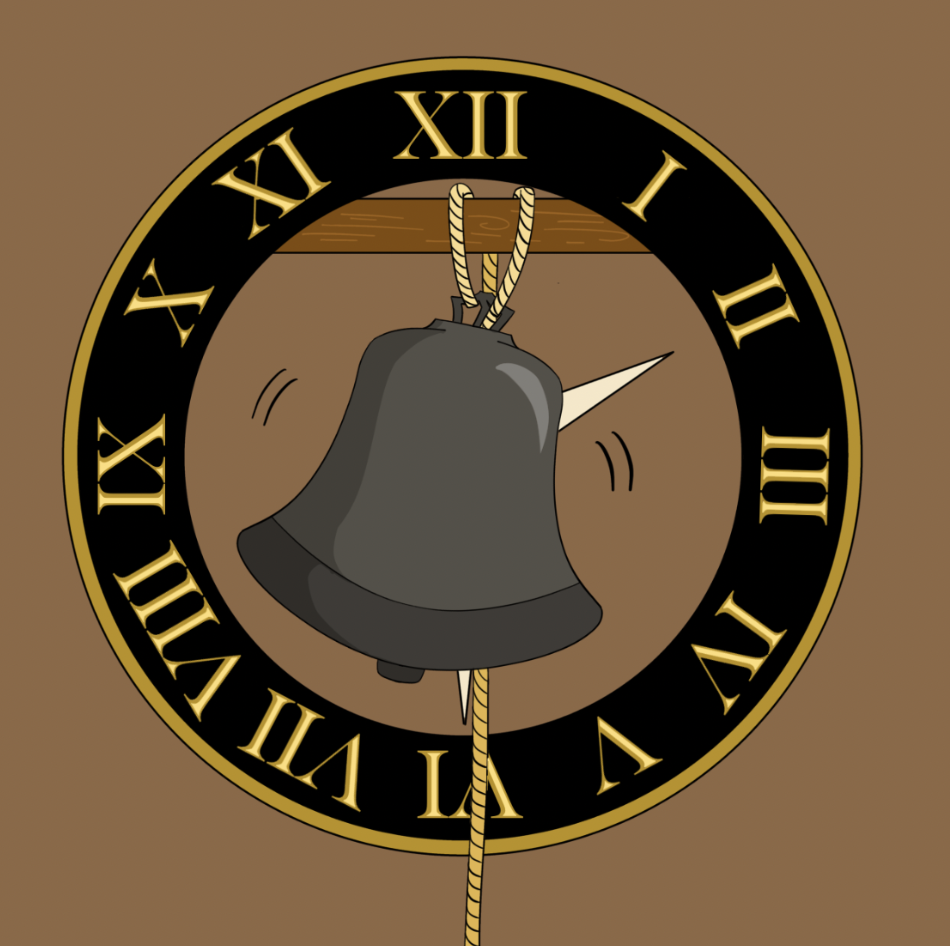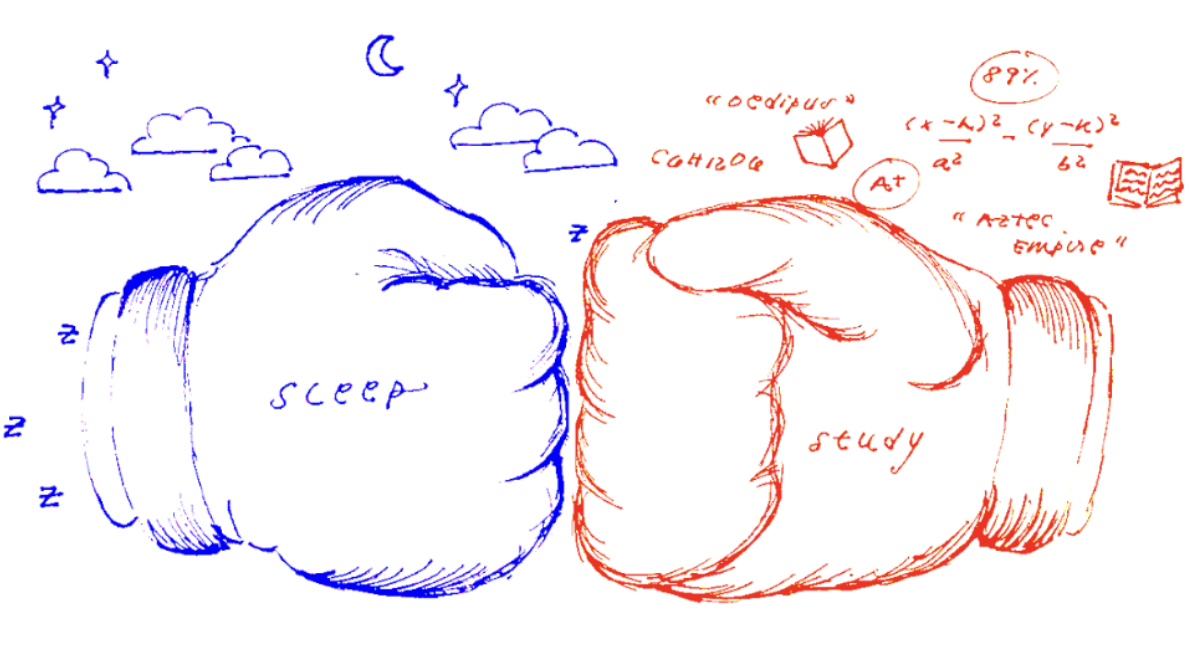(Written September 2023)
On my last day of Fifth Form, I discovered that the Hundred House is haunted.
It was exam week, and my English paper was due on Wednesday, but I had a flight to catch that same day at 8:00 a.m. A wiser Joy would have turned the paper in on Monday, but not so—work always stretches to fill the allotted time, I told myself. I found myself writing deep into the hours on Tuesday night; by the time I was satisfied, it was already 2:00 a.m. I panic-texted a couple friends and zoomed to the Schoolhouse, praying I would find some clever way to acceptably submit my paper through locked doors. But the Schoolhouse was a lost cause, so I went to the Hundred House and somehow managed to turn in my paper there.
As I crossed the Hundred House doors at 2:30 a.m., the trees in front of me exploded, and a million birds flew out in a big, black flurry. I was thoroughly spooked. The Hundred House had clearly summoned a manifestation of my demise, profound animal symbolism straight out of an Alfred Hitchcock movie.
My birds of doom had appeared, and they had flown away. At 2:30 a.m. on Wednesday of exam week, my Fifth Form year—constantly grinding, yet ever in need of extension—was finally over. Waves of relief and post-burnout sleepiness would lapse over me for the following week.
Where had my birds of doom roosted in hiding for so many months? For the most part, they were silent. I toiled through my classes, often blissfully, surrounded by curiosity, excitement, and reservoirs of love. But my birds were inside of me, twittering quietly all along, and I could see them inside others as well: a fear of falling behind and plummeting, a fear of underachieving in the marathon of college, a fear of innate inadequacy. As fall term progresses into winter, these fears become so deeply ingrained inside of us that we’re no longer aware of them. Like hazy dream ideas, our motives become strangers to us, buried underneath the Circle’s fresh December snow. In the winter, we’re in a new dimension. Occasionally, a relatable Chapel Talk wakes us out of our slumber, and we’re like Barbie stepping out of Barbieland, seeing a real human for the first time.
It’s not just us, and we know it. Our whole generation has created a new being, coined by David Brooks’ cover story in the April 2001 issue of The Atlantic: the “Organization Kid.” After visiting Princeton’s campus, he described the student body: robotically overachieving, avoiding dissent, and quietly accepting success as their religion. Every activity has an ulterior motive, and college is “just one step on the continual stairway of advancement.”
We glorify our grind culture, but outsiders perceive our monotony. Deans of admissions at elite universities have expressed disquietude toward our moral passivity. As journalist Annie Lowrey wrote in the Harvard Crimson in 2007, the organization kid is driven by “self-conscious anxiety.” “We prize meritocracy instead of democracy. We nervously judge each other. We have internalized the organization kid system,” she observes.
From one insider to another: What drives us? Suffer now to be satisfied later? Masochistic momentum?This fall, question your motives. Try your best to smell the metaphorical roses. Journal incessantly before you’re engulfed by winter term. If you can, read some insightful fiction about boarding schools, like Never Let Me Go, A Separate Peace, or Prep. Your birds will be here for a while; if you can’t dispel them, befriend them.












